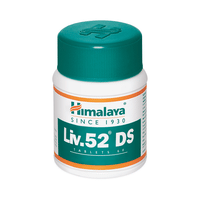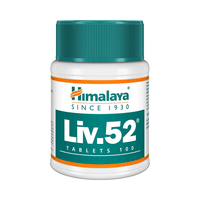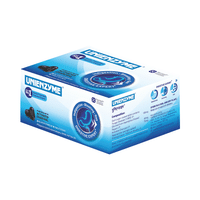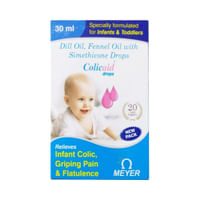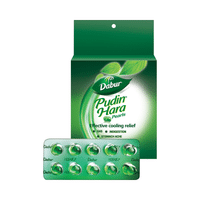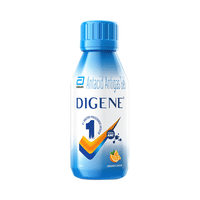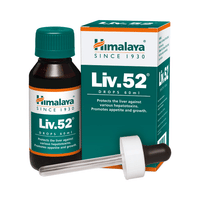Rs.156for 1 strip(s) (10 tablets each)
food interaction for Udifast Tablet
alcohol interaction for Udifast Tablet
pregnancy interaction for Udifast Tablet
lactation interaction for Udifast Tablet
food
alcohol
pregnancy
lactation
Udifast 150mg Tablet should be taken with or after food.
None
None
CAUTION
Alcohol should be used with caution while taking Udifast 150mg Tablet.
CAUTION
The safety of Udifast 150mg Tablet during pregnancy has not been established. There are no adequate and well-controlled studies in pregnant women, and animal data on reproductive toxicity are insufficient. Your doctor will weigh the benefits and any potential risks before prescribing.
CONSULT YOUR DOCTOR
Udifast 150mg Tablet should be used with caution during breastfeeding. Breastfeeding should be held until the treatment of the mother is completed and the drug is eliminated from the body.
CAUTION
SALT INFORMATION FOR Udifast 150mg Tablet
Ursodeoxycholic Acid(150mg)
Udifast tablet uses
{med_name} is used in the treatment of gallbladder stones and primary biliary cirrhosis.
How udifast tablet works
Udifast 150mg Tablet is a hepatoprotective medication. It works by reducing the amount of cholesterol in the blood and helps dissolve gallbladder stones that are composed mainly of cholesterol. It also improves liver enzymes, protects liver cells from injury caused due to toxic bile acids, and improves liver function.
Common side effects of udifast tablet
Abdominal pain, Diarrhea, Nausea, Rash, Hair loss, Cough, Sinus inflammation, Upper respiratory tract infection, Urinary tract infection, Allergy, Chest pain, Dyspepsia, Abdominal discomfort, Headache, Itching, Back pain, Fatigue, Flatulence, Vomiting, Joint pain, Joint inflammation, Muscle pain, Insomnia (difficulty in sleeping), Bronchitis (inflammation of the airways)
SUBSTITUTES FOR Udifast Tablet
294 Substitutes
294 Substitutes
Sorted By
 Rs. 199.40pay 28% more per Tablet
Rs. 199.40pay 28% more per Tablet Rs. 252.89pay 59% more per Tablet
Rs. 252.89pay 59% more per Tablet Rs. 527.03pay 119% more per Tablet
Rs. 527.03pay 119% more per Tablet Rs. 180save 10% more per Tablet
Rs. 180save 10% more per Tablet Rs. 175pay 10% more per Tablet
Rs. 175pay 10% more per Tablet
Expert advice FOR Udifast Tablet
- Ursodeoxycholic Acid should be taken after a meal with a glass of milk or water.
- Eat a healthy diet, exercise regularly, and avoid alcohol intake.
- Diarrhea may occur as a side effect. Drink plenty of fluids and inform your doctor if diarrhea persists or if you find blood in your stools.
- Your doctor may monitor your liver function and bilirubin levels every month for the next 3 months after the start of therapy and every 6 months thereafter.
- Do not stop taking the medication without talking to your doctor.
Frequently asked questions FOR Udifast 150mg Tablet
Ursodeoxycholic Acid
Q. When should I take Udifast 150mg Tablet?
The suitable timing of taking this medicine might differ depending on your condition. Your doctor might instruct you to take 2 to 3 doses per day and suggest taking the last dose at bedtime. Udifast 150mg Tablet should be taken with water or milk after food. When prescribed for dissolving gallstones, it is usually suggested to be taken once daily at night.
Q. Is Udifast 150mg Tablet safe?
Udifast 150mg Tablet is usually considered to be a safe and effective medicine. However, this medicine may have some common side effects, such as diarrhea. If diarrhea occurs, your doctor may reduce the dose, and if it persists, your treatment may be discontinued. Additionally, using this medicine as a long-term therapy may also affect your liver enzyme levels. To keep a check on this, your doctor will keep monitoring your liver enzyme levels regularly. Despite these minor side effects, this medicine is supposed to be a good alternative to surgery in some patients with gallstones.
Q. How does Udifast 150mg Tablet help the liver?
Udifast 150mg Tablet acts on the liver and gets concentrated in the bile secreted from the liver. This, as a result, suppresses the synthesis and secretion of cholesterol by the liver, thereby decreasing the cholesterol levels in bile. This medicine also acts by stopping the intestines from absorbing the bile salts and cholesterol. So, the reduced cholesterol saturation in the bile from the liver leads to the gradual dissolving of cholesterol from gallstones, leading to a decrease in size and their eventual dissolution. It also reduces elevated liver enzyme levels by increasing the bile flow through the liver, hence protecting the liver cells.














